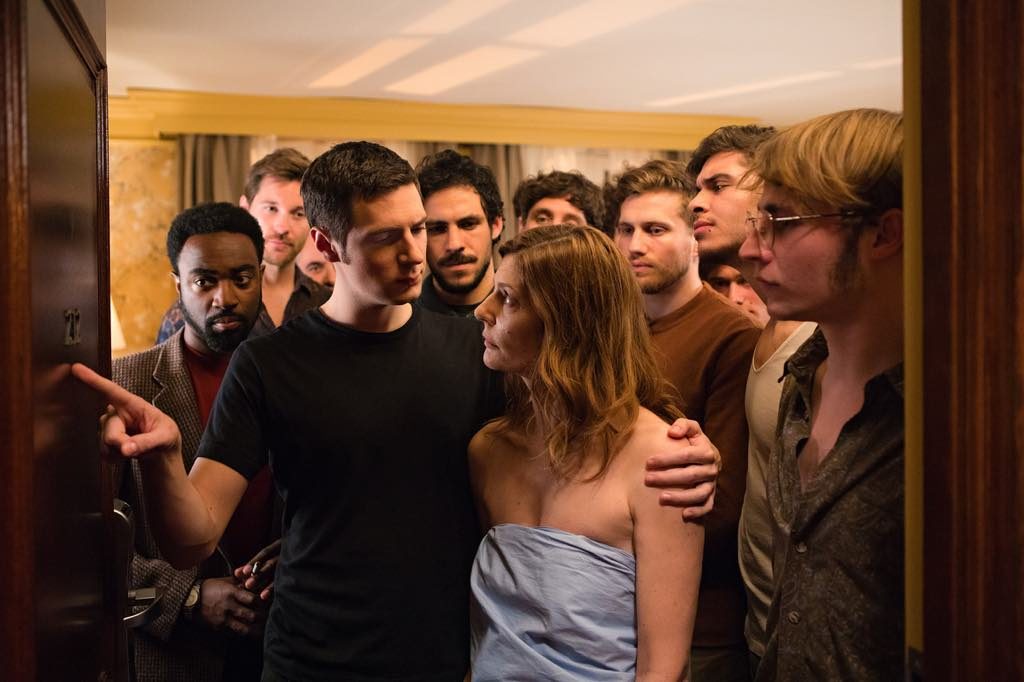
Although not born in the city, Christophe Honoré has become the quintessential Parisian film director. Many of his movies (such as Dans Paris and my particular favorite, Les Chansons d’Amour) are set in very recognizable locations around the city. His new offering, Chambre 212 (Room 212), follows this trend in that it is situated in the Montparnasse district, with all the action taking place in an apartment opposite and a hotel room above the iconic cinema Les 7 Parnassiens.
This choice of location is surely no coincidence because the film contains several knowing nods to the work of other directors, such as François Truffaut, Bertrand Blier, Alain Resnais and Alfred Hitchcock. It is probably for this reason that Chambre 212 has received largely laudatory reviews from the French critics: nothing appeals more to the movie nerd than self-regarding cinematic references. And yet, oddly, what struck me most about this film was how static and uncinematic it felt.
The plot revolves around Maria (played by Chiara Mastroianni), a law professor married for 20 years to Richard (Benjamin Biolay). When Richard discovers a text message on his wife’s phone that leaves no doubt that she had been having sex that afternoon with a much younger lover, Maria admits, without apology, that she has had a string of lovers during their marriage. She then leaves their apartment to spend the night in a hotel room directly opposite so that she can reassess her life and marriage as she watches her husband wander around their apartment looking depressed – whatever acting talents Biolay may possess are hardly stretched in this one-toned role.
One of the potentially striking touches that Honoré adds to the mix is that Maria is visited in the hotel by various apparitions of her and Richard’s pasts, including a younger version of Richard (played by a current Honoré favorite, the pert-buttocked but irritatingly mumbling Vincent Lacoste), and Richard’s first love, his music teacher Irène (Camille Cottin). Added to the mix is a Charles Aznavour lookalike (played by Stéphane Roger) who represents Maria’s will.
At another point the room is filled with all her pretty-boy younger former lovers (seemingly all her students): one wonders in this #MeToo world what the critical reaction would be if Maria had been a male law professor surrounded by his much younger female conquests. There is even time for Irène to visit her future self (played by the wonderful velvet-toned Carole Bouquet).
If all these elements might sound whimsical and charming, to my mind they simply cluttered up both the room and the film, removing any sense of emotional truth. Mastroianni is always eminently watchable, but it is surprising that she won the best actress award in the “Un Certain Regard” section of this year’s Cannes Film Festival for the role, as the messiness of the film does not really allow her to give a truly nuanced performance.
At times, it felt that Honoré and his actors were simply making things up as they went along. By the time the closing minutes of the movie turned to various renditions of the Barry Manilow classic “Could it be Magic?”, my answer to the crooner was a resounding “No it could not!”
Favorite